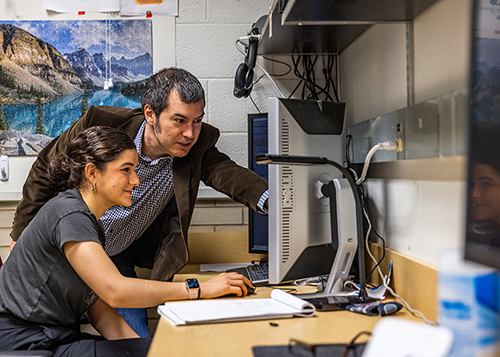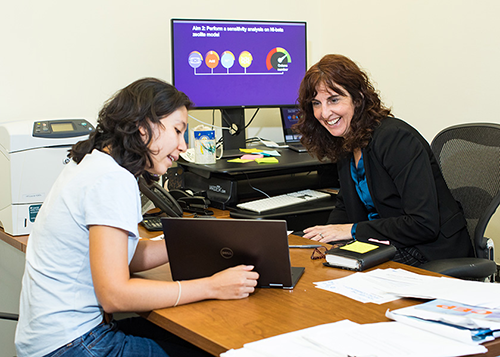Joining Forces to Curb Climate Change Multiple Collaborators Combine Their Specialties to Advance the Commercialization of an Innovative Biofuel
By bringing our unique skill sets together on this effort the potential is there to go into commercial production and have a positive impact on carbon emissions and sustainability.”
Keith Tyo, Associate Professor of Chemical and Biological Engineering, McCormick School of Engineering

Trading greenhouse gas-causing fossil fuels for renewable alternatives such as biofuels remains one of the most compelling ways to combat climate change and contribute to a healthier planet. While ethanol, a biofuel concocted from corn and other plant materials, has captured some marketplace reach, the need for more accessible, economical, and sustainable biofuels remains high.
Powered by a U.S. Department of Energy investment in sustainable chemicals using bacteria, an enterprising collaboration between three different Northwestern University research labs, a national laboratory, and a clean energy startup is drawing closer to a novel biofuel solution using clostridia, an ancient organism that grows on carbon monoxide, carbon dioxide, and hydrogen gas.

The process starts in the labs of Keith Tyo, associate professor of chemical and biological engineering, and Linda Broadbelt, Sarah Rebecca Roland Professor of Chemical and Biological Engineering. The Tyo and Broadbelt groups develop computational models to quickly prototype thousands of potential biosynthetic pathway designs. Using a range of algorithms, they narrow the abundant options down to only the most intriguing pathways capable of optimizing clostridia’s production of biofuels.
These pathway designs are then passed to Mike Jewett, Walter P. Murphy Professor of Chemical and Biological Engineering, and his lab team, who can rapidly evaluate enzymes and pathways in their cell-free experiments.
Thereafter, the Northwestern team shares their findings with LanzaTech for experimental testing in clostridia. Oak Ridge National Laboratory, meanwhile, provides critical bacterial analysis to ensure the project’s validity.
The daring project underscores the power of collaboration and leveraging dynamic new approaches to confront a pressing global problem.
“By bringing our unique skill sets together on this effort the potential is there to go into commercial production and have a positive impact on carbon emissions and sustainability.” --Keith Tyo, Associate Professor of Chemical and Biological Engineering, McCormick School of Engineering
View technologies available for licensing and invented by Prof. Keith Tyo on our technologies page.